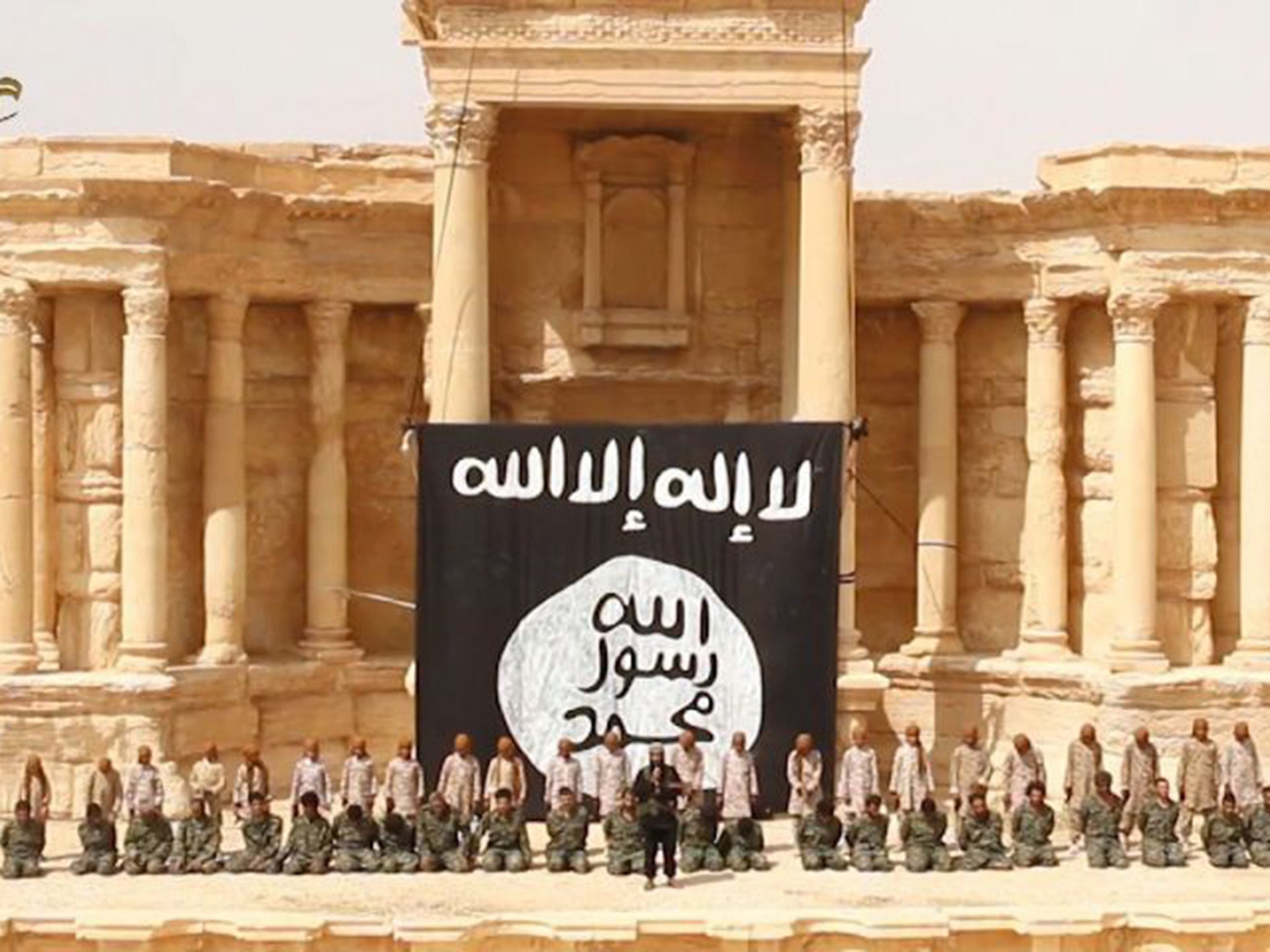What’s Russia up to in Syria? I would wager they're after something big – retaking Palmyra
Recapturing the ancient city it would be an epic symbol of new ambitions


Vladimir Putin hasn’t sent his soldiers to Syria just to show solidarity with Bashar al-Assad. Nor has he flown them into the Russian bases around Tartous to keep Assad in power. That goes without saying. And Putin isn’t worried about losing the only warm water Mediterranean port still in Moscow’s hands.
He wants a victory. Syria’s army, the only institution upon which the regime – indeed, the entire state apparatus – depends is being re-armed and trained for a serious military offensive against Isis, one which is meant to have enormous symbolic value both in the Middle East and in the world. Military plans always get delayed. And the moment the first artillery piece sends off a shell, the plans always go wrong. In Syria, operational details change every day and every night. But I’ll wager a well-informed guess right now – and we’ll keep calling this a guess, if only for form’s sake – that the Syrian army is being primed to recapture the ancient Roman city of Palmyra from the Islamists.

New Russian fighter-bombers, new anti-armour missiles, perhaps even the new T-90 Russian tanks are being prepared for the desert terrain. One of Syria’s most modern air force bases lies scarcely 50 miles from Palmyra – on the main road east to Homs – and the Syrian army has for months planned for an attack around the city. Only weeks ago, they postponed an offensive for fear that Isis would destroy the rest of the Roman city. But such concerns have now diminished. Isis has shown itself quite willing to destroy the Roman temples without a military assault on its forces.
Now a reminder. At this moment, I’m keeping to the “informed guess” that I mentioned above. The regime has to hold onto Aleppo lest it collapses into Isis hands and is immediately declared the Caliphate’s Syrian capital. The Syrian army has to keep open the road to Lebanon and the heights of Qalamoun along the Lebanese border. It cannot risk any more towns falling into Isis hands. But Palmyra is top of the list for the doubtful privilege of “liberation” from Isis.
The date would be within the next three weeks, but – since all Middle East battles slide off the time chart – we could probably run up to early November, before the rains begin sweeping across the sands from Iraq. Palmyra is a pearl to be recaptured because the world – with utter insensitivity, far more concerned about the fate of its imperial Roman ruins than its people – has registered the city’s loss to Isis last May as a major success for the “Caliphate”.
But for Putin, an offensive would – or will – be an epic symbol of Russia’s new projection into the Middle East. For Obama and Cameron and the rest of our Western leaders, who have fumbled around Syria for four years, neither dethroning Assad nor defeating Isis, a Russian-assisted recapture of Palmyra would be a humiliating lesson. Trusting in Moscow – and remember that Egyptian President al-Sissi was taking Putin to the Cairo opera only a few months ago – may look like a better bet for any Middle East leader than relying on Western support.
Politically, of course, a post-victory Palmyra will leave Assad much more secure in his half of Syria. Already the Americans and British are waffling about his “transitional” role in a future Syrian government – a “transition” which we all know could last for years. Putin is not pouring Russian treasure into the Syrian death pit to allow his man in Damascus to be overthrown. His Ukrainian president ran away. But Assad did not scarper off to Russia over these past four years. Nor has he remained in Damascus only to be pensioned off as a “transitional” president.
But what comes after Palmyra? The recapture of much of Aleppo – a far more risky project – or a return to Idlib city or even an attempt to seize the Isis “capital” of Raqqa? Relief, certainly, for the surrounded regime garrison in the desert city of Deir Ezzour. But a dark genie moves around the Syrian desert, awarding no prizes to the brave or the foolhardy. If Russia and Syria have made their plans, be sure that Isis have other operations up their sleeve; a strike into central Damascus, for example, as the rebels tried three years ago.
Nor will Russia be able to shake off the ghosts of Afghanistan in Syria. You cannot “capture” deserts. Nor can a new Russian air fleet defeat Isis on its own. At the very least, it must not tangle with Syria’s neighbours, which is almost certainly why Benjamin Netanyahu has just met Putin – to ensure that Israel does not misconstrue the meaning of Russian high altitude planes north-east of Golan. And the restoration of regime control – even over Palmyra – will lead to no broad sunlit uplands. Putin and Assad are not planning for any parliamentary democracies on the road to Damascus. But if Isis – along with its Putin-hating Chechen fighters – gets its wings clipped, then the US – and Nato – will have to negotiate with Moscow over the future of Syria. All of which, of course, will read like a curse to the hundreds of thousands of Syrian refugees bleeding away from their country on their great trek north through the Balkans.
Bookmark popover
Removed from bookmarks